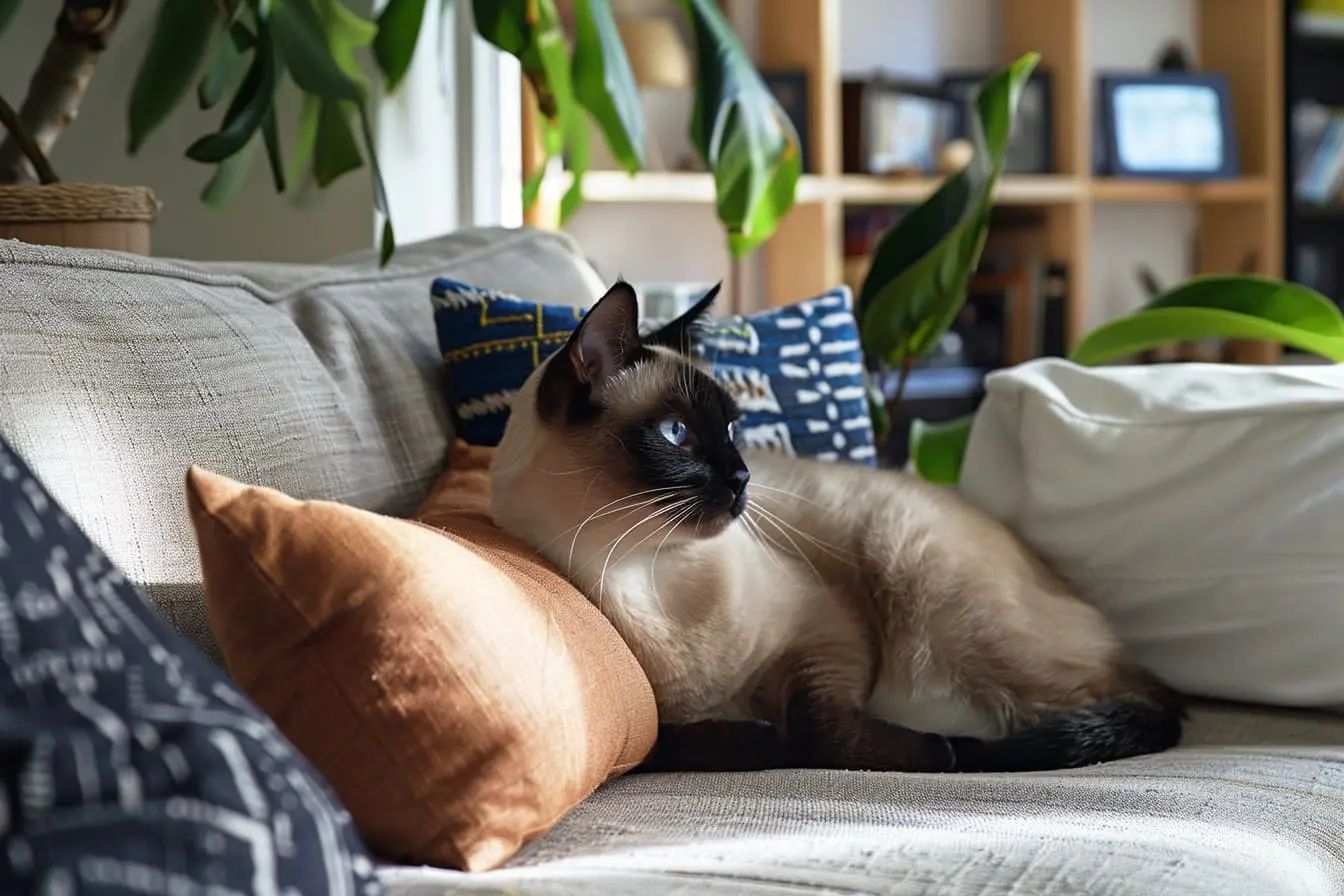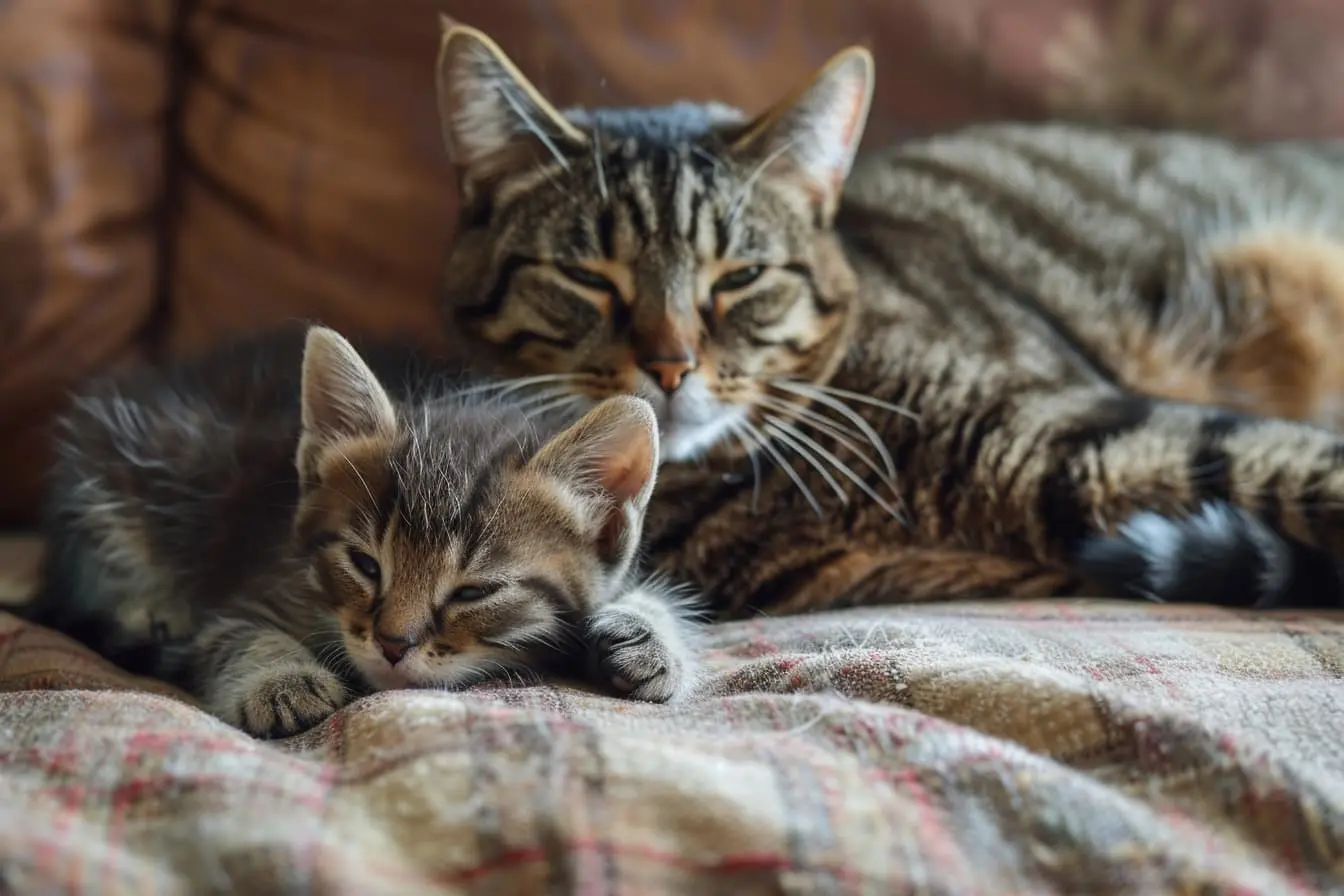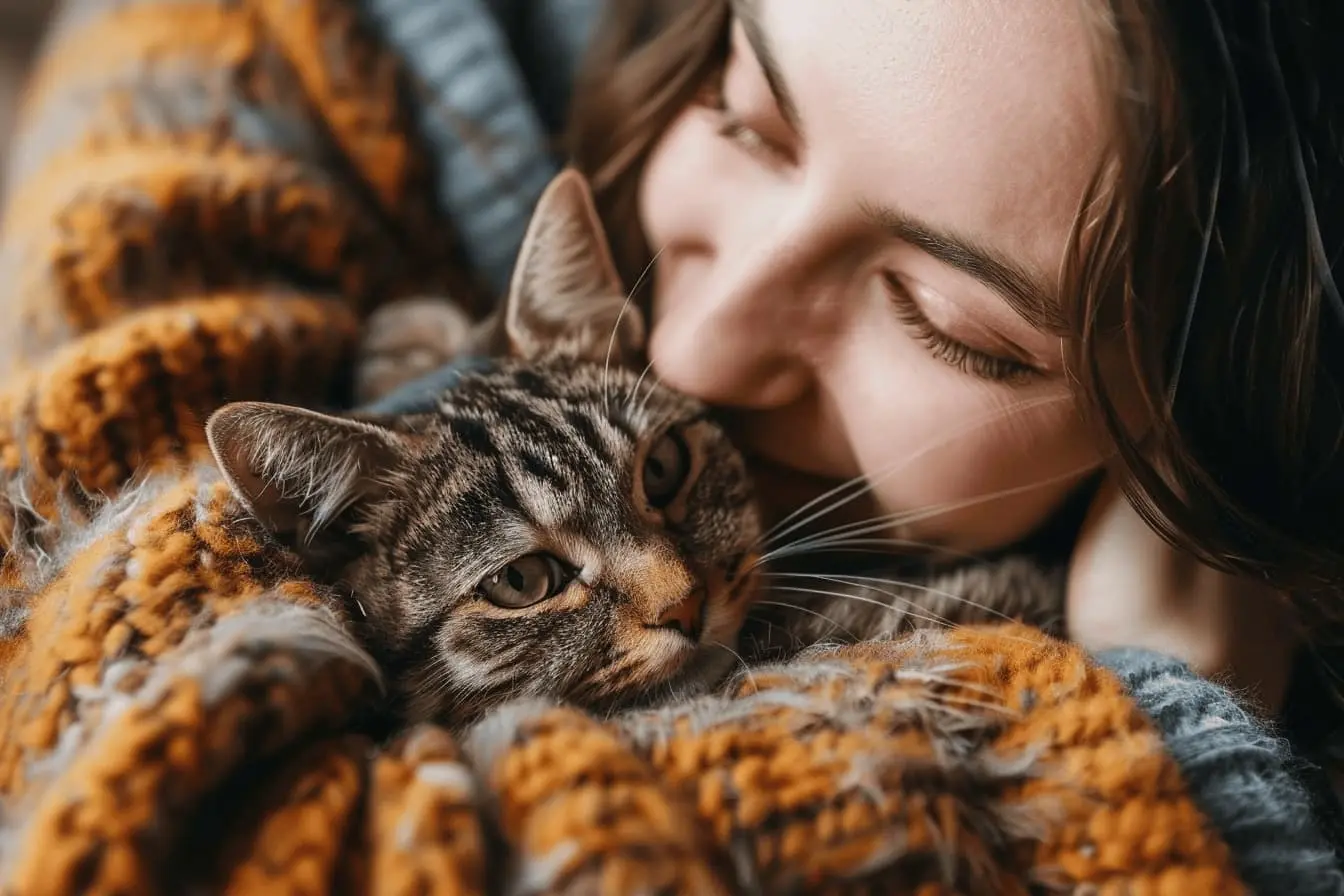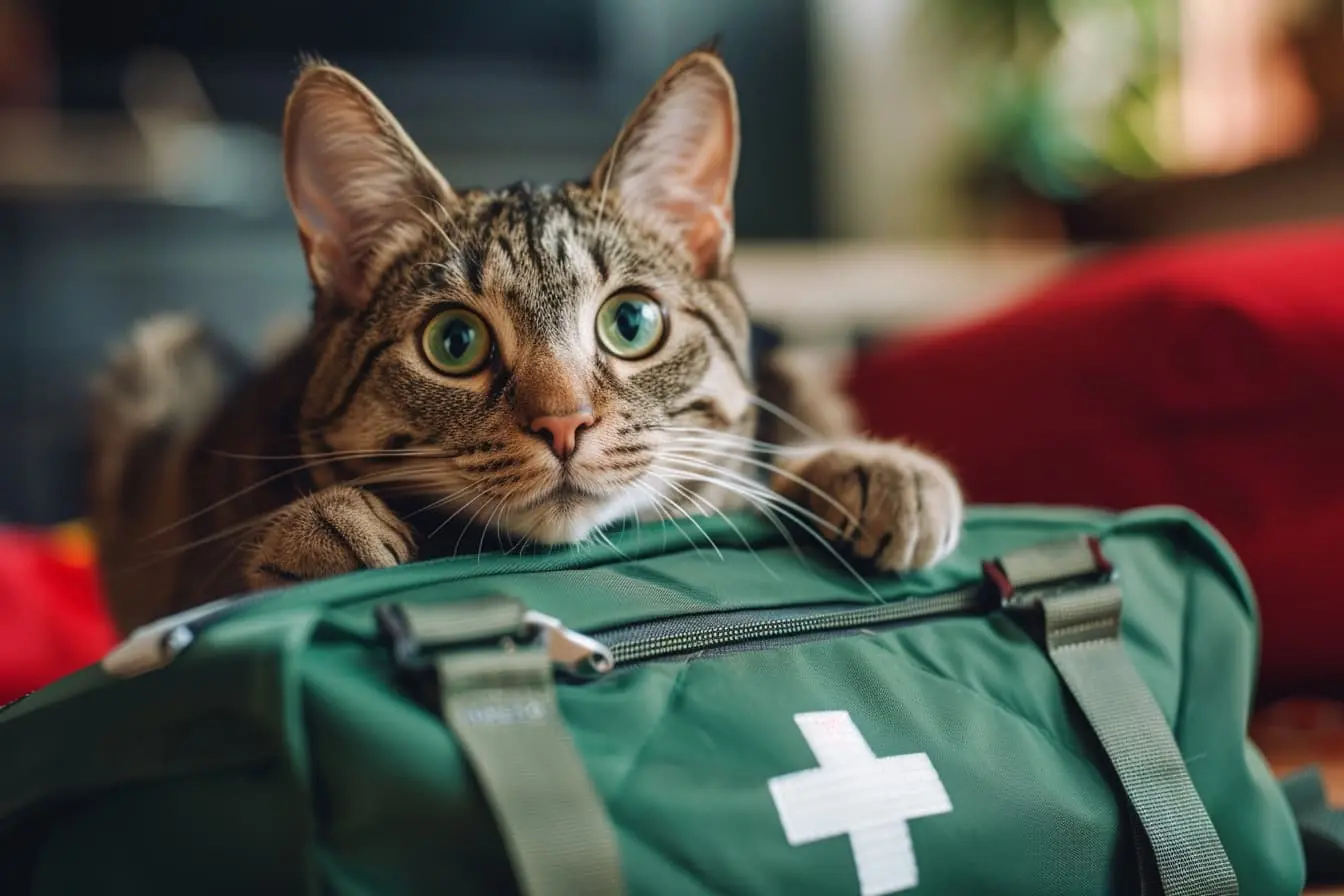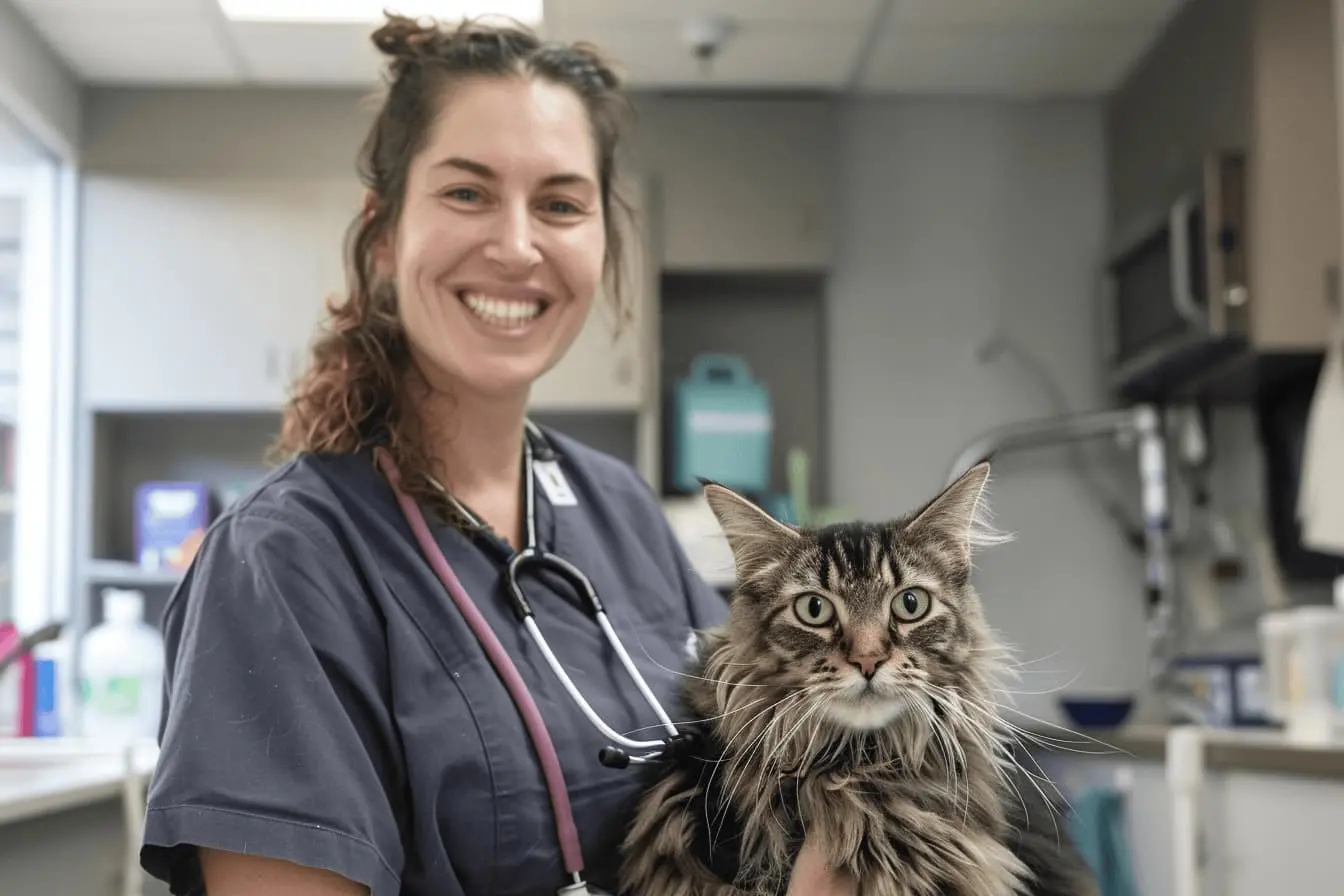
The Top 50 Feline FAQs: Answers from UK Vets
Cats are among the UK's most beloved pets, with millions enjoying their quirky companionship. However, being a responsible cat owner means having questions, lots of them. From diet concerns to behaviour quirks, UK vets are often asked a variety of questions by concerned cat owners. Here's a comprehensive guide addressing the most common queries.
How often should I take my cat to the vet?
Answer: Regular check-ups are vital for maintaining your cat's health. Adult cats should have a veterinary examination at least once a year. However, kittens, senior cats, or those with health issues may require more frequent visits. Always consult your vet to determine the best schedule for your feline friend.
What should I feed my cat?
Answer: Cats are obligate carnivores, meaning their diet should be high in meat. The best choice is a balanced commercial cat food, available as dry, wet, or a combination of both. Portion control is crucial to prevent obesity. Fresh water should always be available. Consult your vet for advice tailored to your cat's age, health, and lifestyle.
Why does my cat vomit?
Answer: Occasional vomiting can be normal for cats due to hairballs or dietary indiscretion. However, frequent or sudden vomiting can indicate a health problem, such as an infection, intestinal obstruction, or more serious conditions. If vomiting is regular or accompanied by other symptoms (lethargy, diarrhoea, weight loss), seek veterinary advice promptly.
How can I stop my cat from scratching furniture?
Answer: Scratching is a natural behaviour for cats, helping them mark territory, stretch, and maintain claw health. To protect your furniture, provide alternative scratching posts or pads, strategically placed where your cat prefers to scratch. Encouraging use of these alternatives with catnip or treats can also be effective. Regularly trimming your cat's claws can help minimise damage.
Is it okay for my cat to go outdoors?
Answer: Allowing your cat outside carries both benefits (exercise, stimulation) and risks (traffic, fights, diseases). Consider your environment and your cat's health and temperament. Microchipping and regular vaccinations are essential for outdoor cats. Alternatively, you can provide a rich indoor environment or secure outdoor enclosures to keep them safe while exploring.
How do I introduce a new cat to my current pet?
Answer: Introducing a new cat requires patience and gradual steps. Start by keeping them in separate rooms, allowing them to smell each other under the door. Gradually introduce visual contact with a barrier, then short, supervised interactions. Ensure each cat has its own resources (food, water bowls, litter boxes) to reduce competition. The process can take days to weeks, depending on their personalities.
Why is my cat not using the litter box?
Answer: Litter box avoidance can stem from medical issues, stress, or dissatisfaction with the litter box itself. Ensure the box is clean, accessible, and in a quiet location. Consider the type of litter and the box size - some cats prefer larger boxes or different litter materials. If the problem persists, consult your vet to rule out health issues.
How do I know if my cat is in pain?
Answer: Cats are experts at hiding discomfort. Signs of pain can be subtle: changes in behaviour, decreased activity, loss of appetite, or unusual aggression. Look for changes in grooming habits or difficulty jumping. If you suspect your cat is in pain, it's crucial to consult your vet immediately.
How can I tell if my cat is overweight?
Answer: Obesity in cats is a growing concern and can lead to serious health issues. Signs your cat may be overweight include difficulty feeling their ribs, lack of a visible waist, and a round, protruding abdomen. A healthy cat should have a slight abdominal tuck and a waist when viewed from above. Your vet can assess your cat's body condition and recommend a diet and exercise plan if necessary.
Do cats need to be bathed?
Answer: Most cats are meticulous groomers and do not typically need baths. However, certain circumstances may require a bath, such as getting into something sticky or toxic. If bathing is necessary, use a cat-specific shampoo and ensure the water is lukewarm. Be gentle and quick, and never use human shampoo as it can be harmful to their skin.
Should I brush my cat's teeth?
Answer: Dental care is an often-overlooked aspect of cat health. Regular dental check-ups and brushing can prevent many dental diseases. Use a cat-specific toothbrush and toothpaste (never human toothpaste, which can be toxic to cats). Start slowly, introducing the toothbrush gradually, and praise your cat to make the experience as positive as possible.
Why does my cat meow so much?
Answer: Cats meow for various reasons, including hunger, stress, seeking attention, or medical issues. It's essential to understand the context of the meowing. If your cat suddenly starts meowing more than usual, a vet visit is advisable to rule out any underlying health concerns.
Can indoor cats get bored?
Answer: Yes, indoor cats can become bored, leading to behavioural issues and obesity. Enriching your cat's environment with toys, scratching posts, and perches can stimulate their minds and encourage physical activity. Interactive playtime is also crucial for their mental and physical well-being.
What vaccinations does my cat need?
Answer: The core vaccinations for cats in the UK include feline panleukopenia (FPV), feline herpesvirus (FHV-1), and feline calicivirus (FCV). The frequency of vaccinations can vary, so it's best to discuss your cat's needs with your vet. Non-core vaccinations are recommended based on your cat's lifestyle and risk factors.
How can I travel safely with my cat?
Answer: Travelling can be stressful for cats. A sturdy, comfortable carrier is essential. Acclimate your cat to the carrier in advance by leaving it open at home with a familiar blanket inside. During travel, keep the carrier secure in the vehicle and avoid feeding your cat immediately before the trip to prevent motion sickness. Always ensure your cat has access to fresh water.
What are the signs of stress in cats?
Answer: Cats can experience stress from changes in their environment, new pets or people in the home, or loud noises. Signs of stress include hiding more than usual, changes in eating or litter box habits, excessive grooming, and aggression. Reducing stress involves identifying the cause and gradually acclimating your cat to the stressor, providing safe spaces, and ensuring a stable routine.
How do I deal with aggressive behavior in my cat?
Answer: Aggressive behavior can stem from fear, stress, territorial disputes, or health issues. Identifying the trigger is key to addressing aggression. Provide a calm, safe environment for your cat and avoid punishment, which can increase stress and aggression. For persistent issues, consult a vet or a feline behaviorist for tailored strategies and possible medical interventions.
Can cats get colds?
Answer: Yes, cats can catch colds or upper respiratory infections, often caused by viruses like feline herpesvirus and calicivirus. Symptoms include sneezing, runny nose, watery eyes, and lethargy. While many colds can be managed at home with supportive care, consult your vet if symptoms persist or worsen, as some infections can become serious.
Why does my cat eat grass?
Answer: Cats may eat grass for several reasons, including aiding digestion, inducing vomiting to clear hairballs, or fulfilling a nutritional need. Eating small amounts of grass is normal and generally safe. However, ensure the grass hasn't been treated with pesticides or fertilisers, which can be harmful.
How can I make my home more cat-friendly?
Answer: Creating a cat-friendly environment involves providing safe, stimulating spaces. Include various perches and hiding spots, cat trees for climbing, scratching posts, and toys that encourage hunting behaviours. Regularly rotating toys can keep your cat interested and engaged. Consider window perches to allow bird watching, and ensure your cat has a quiet, comfortable place to retreat and feel secure.
What should I do if my cat goes missing?
Answer: If your cat goes missing, act quickly. Search your home thoroughly first, including all hiding spots. Notify your local vet clinics, animal shelters, and register your cat as missing on local lost pet databases. Use social media and community groups to spread the word. Consider posting flyers in your neighborhood with a clear photo and contact information. Microchipping your cat and keeping contact information up to date significantly increases the chances of a reunion.
Is it normal for a cat to sleep so much?
Answer: Yes, cats are known for their extensive sleeping habits, typically sleeping 12 to 16 hours a day. This behaviour is rooted in their natural instincts as predators; conserving energy for hunting. However, if you notice a sudden change in your cat's sleep patterns or excessive lethargy, it's worth consulting your vet to rule out any underlying health issues.
How can I prevent my cat from getting fleas?
Answer: Regular use of flea prevention treatments is essential, even for indoor cats. Consult your vet for the best flea control products and schedule. Additionally, keep your home clean by vacuuming regularly and washing your cat's bedding frequently. Preventing fleas is easier than eradicating an infestation once it occurs.
Can my cat get lonely?
Answer: Yes, cats can experience loneliness, especially if left alone frequently or for extended periods. Providing interactive toys, puzzle feeders, and regular playtime can help. Some cats benefit from the companionship of another cat or pet, although introductions should be done gradually and carefully.
How do I know if my cat is happy?
Answer: Signs of a happy cat include a relaxed posture, upright tail with a slight curve at the top, purring, kneading, and seeking out your company. Happy cats are also playful, show a good appetite, and have a healthy grooming routine. Observing your cat’s daily behaviour and noting any changes can help you gauge their happiness.
What are hairballs, and should I be worried about them?
Answer: Hairballs occur when cats ingest their own fur during grooming, which then accumulates in the stomach and is eventually vomited out. Occasional hairballs are normal, especially in long-haired breeds. However, frequent hairballs or difficulty expelling them can indicate digestive issues. Regular grooming and specialised hairball-prevention diets can help reduce their occurrence.
Can I train my cat to use the toilet?
Answer: Yes, with patience and consistent training, some cats can learn to use the human toilet. Special training kits are available to help transition from litter box to toilet. However, it’s not suitable for all cats, and some may resist changing their habits. It’s also important to consider that using the toilet eliminates the cat's natural behaviour to dig and cover their waste, which may not be ideal for all cats.
Why does my cat bring me dead animals?
Answer: This behaviour is a natural instinct. In the wild, mother cats bring back prey to teach their kittens how to eat. When your cat brings you dead animals, it may be acting on this instinct or showing affection by sharing their "catch." While it may be unsettling, it's a sign of trust and bonding.
How can I reduce cat dander in my home?
Answer: Reducing cat dander involves regular grooming, using a high-quality air purifier, and frequent cleaning of your home, including vacuuming and dusting. Bathing your cat with vet-approved products can also reduce dander, but consult your vet first, as frequent baths can dry out their skin.
What should I do if my cat is constipated?
Answer: Constipation in cats can be relieved by ensuring they are hydrated, encouraging exercise, and providing a diet rich in fibre. Specialised cat foods designed for digestive health can also help. If constipation persists, consult your vet, as it can be a sign of underlying health issues.
Can cats see in complete darkness?
Answer: Cats have excellent night vision but cannot see in complete darkness. Their eyes have a high number of rods and a reflective layer behind the retina, enhancing their ability to see in low light. However, like humans, they need some light to see.
Should I worry about my cat snoring?
Answer: Snoring in cats, especially those with flat faces like Persians, can be normal. However, if snoring is accompanied by other signs of respiratory distress, such as open-mouth breathing or decreased activity, it could indicate a health issue and should be evaluated by a vet.
How can I help my cat during fireworks or thunderstorms?
Answer: Provide a safe, quiet space where your cat can retreat. Close windows and curtains to muffle the sounds and play soft music to help calm them. Some cats benefit from pheromone diffusers or wraps designed to reduce anxiety. Consult your vet for further advice if your cat becomes extremely distressed.
Is it normal for cats to drool?
Answer: Some drooling can be normal, especially when your cat is relaxed or kneading. However, excessive drooling can be a sign of dental disease, oral injuries, or other health issues. A vet check-up is advisable to rule out any underlying problems.
Why does my cat sleep on me?
Answer: Cats often sleep on their owners to seek warmth, security, and comfort. This behaviour also signifies trust and affection. Your breathing patterns and heartbeat can be soothing to your cat, making you the perfect nap spot.
How can I tell if my cat is dehydrated?
Answer: Signs of dehydration in cats include lethargy, dry gums, and decreased skin elasticity. To check for dehydration, gently pinch the skin on the back of your cat's neck. If it doesn't quickly return to its normal position, your cat may be dehydrated. Offer fresh water and consult your vet if you notice these signs, as dehydration can be serious.
Is it safe to give my cat milk?
Answer: Many cats are lactose intolerant, meaning they can't properly digest the lactose in cow's milk, leading to upset stomachs and diarrhoea. It's best to avoid giving your cat milk. If you want to treat your cat, use lactose-free cat milk substitutes available in pet stores.
How do I deal with a shy cat?
Answer: Patience and gentle encouragement are key with shy cats. Create a quiet, safe space where they can retreat, and avoid loud noises and sudden movements. Use treats and toys to encourage interaction, but let your cat set the pace. Gradually, your cat will build confidence and trust. Feliway or similar pheromone diffusers may also help soothe anxious cats.
Can cats recognise their names?
Answer: Yes, cats can learn to recognise their names and the voices of their owners. However, their response may vary compared to dogs. Cats often choose to acknowledge their name being called with subtle signs, such as turning their head or twitching their ears, rather than coming when called.
How do I introduce my cat to a baby?
Answer: Introduce your cat to a new baby gradually. Before the baby arrives, acclimate your cat to the upcoming changes, such as the sounds of a baby crying (using recordings) and the smell of baby lotion. Once the baby is home, supervise all interactions. Encourage positive associations by rewarding your cat with treats and affection when they behave calmly around the baby. Ensure your cat has a quiet space to retreat to when they need it.
How can I keep my indoor cat entertained?
Answer: Keeping an indoor cat entertained involves providing a variety of toys, climbing structures, and interactive games. Rotate toys to maintain interest, and consider window perches for bird watching. Engage in daily play sessions with laser pointers, feather toys, or anything that stimulates your cat's hunting instincts. Puzzle feeders can also stimulate their mind and prolong their eating time.
What are the signs of aging in cats?
Answer: Signs of aging in cats can include decreased activity, weight changes (loss or gain), more frequent napping, difficulty jumping, changes in hearing or vision, and increased vocalisation. Dental issues, stiff joints, and signs of confusion or disorientation can also occur. Regular vet check-ups are important to manage age-related health issues effectively.
Why is my cat peeing outside the litter box?
Answer: Inappropriate urination can be caused by medical issues, stress, or dissatisfaction with the litter box. Medical causes like urinary tract infections, diabetes, or kidney disease need to be ruled out first. Ensure the litter box is clean, accessible, and in a quiet area. Also, consider the type of litter used and the box's size and privacy.
Can cats get depressed?
Answer: Yes, cats can show signs of depression, such as changes in appetite, sleep patterns, grooming habits, and activity levels. Withdrawal from social interactions and loss of interest in play or activities they once enjoyed can also indicate depression. Changes in environment, loss of a companion (pet or human), or health issues can contribute. Consult your vet for advice and treatment options.
How often should I clean my cat's litter box?
Answer: The litter box should be scooped daily to remove waste and kept clean to encourage its use. Full litter changes and box cleaning should occur at least once a week, but this may vary depending on the number of cats, the type of litter used, and the specific litter box. Using unscented, dust-free litter and cleaning the box with mild, unscented soap helps prevent aversion.
What should I do if my cat gets fleas?
Answer: Begin treatment immediately if your cat gets fleas. Consult your vet for the best flea treatment options, which may include topical treatments, oral medications, or flea collars. Treat all pets in the household, and thoroughly clean your home by vacuuming floors, furniture, and washing bedding in hot water to eliminate fleas and their eggs.
How can I tell if my cat is too hot?
Answer: Signs your cat may be overheating include excessive panting, drooling, lethargy, rapid heartbeat, and staggering. On hot days, ensure your cat has access to shaded, cool areas, and provide plenty of fresh water. Never leave your cat in a parked car, and consider using cooling mats or wet towels for them to lie on if necessary.
What's the best way to trim my cat's nails?
Answer: Trim your cat's nails using a pair of cat nail clippers, cutting only the sharp tip to avoid the quick, which can cause bleeding and pain. It's helpful to acclimate your cat to having their paws handled from a young age. Reward them during and after trimming to create a positive association. If unsure, ask your vet for a demonstration.
Can I leave my cat alone overnight?
Answer: Cats are generally independent, but leaving them alone overnight should be done with preparation. Ensure they have access to enough food, fresh water, and clean litter boxes. Leaving toys and engaging in a good play session before leaving can help keep them content. However, consider your cat's health, age, and whether they're used to being alone for extended periods.
What does it mean when a cat kneads?
Answer: Kneading, often referred to as "making biscuits," is a comforting behavior rooted in kittenhood when they knead their mother's belly to stimulate milk flow. In adult cats, kneading signifies contentment and comfort and can also mark their territory through scent glands in their paws. It's a sign of trust and affection when your cat kneads you.
Conclusion
Caring for a cat is a rewarding experience, filled with joys and challenges. Understanding your cat's needs and behaviours is key to a happy, healthy life together. Always consult your vet with concerns about your cat's health or behaviour. They're your best resource for ensuring your feline friend's well-being.
Contents
- How often should I take my cat to the vet?
- What should I feed my cat?
- Why does my cat vomit?
- How can I stop my cat from scratching furniture?
- Is it okay for my cat to go outdoors?
- How do I introduce a new cat to my current pet?
- Why is my cat not using the litter box?
- How do I know if my cat is in pain?
- How can I tell if my cat is overweight?
- Do cats need to be bathed?
- Should I brush my cat's teeth?
- Why does my cat meow so much?
- Can indoor cats get bored?
- What vaccinations does my cat need?
- How can I travel safely with my cat?
- What are the signs of stress in cats?
- How do I deal with aggressive behavior in my cat?
- Can cats get colds?
- Why does my cat eat grass?
- How can I make my home more cat-friendly?
- What should I do if my cat goes missing?
- Is it normal for a cat to sleep so much?
- How can I prevent my cat from getting fleas?
- Can my cat get lonely?
- How do I know if my cat is happy?
- What are hairballs, and should I be worried about them?
- Can I train my cat to use the toilet?
- Why does my cat bring me dead animals?
- How can I reduce cat dander in my home?
- What should I do if my cat is constipated?
- Can cats see in complete darkness?
- Should I worry about my cat snoring?
- How can I help my cat during fireworks or thunderstorms?
- Is it normal for cats to drool?
- Why does my cat sleep on me?
- How can I tell if my cat is dehydrated?
- Is it safe to give my cat milk?
- How do I deal with a shy cat?
- Can cats recognise their names?
- How do I introduce my cat to a baby?
- How can I keep my indoor cat entertained?
- What are the signs of aging in cats?
- Why is my cat peeing outside the litter box?
- Can cats get depressed?
- How often should I clean my cat's litter box?
- What should I do if my cat gets fleas?
- How can I tell if my cat is too hot?
- What's the best way to trim my cat's nails?
- Can I leave my cat alone overnight?
- What does it mean when a cat kneads?
- Conclusion
Tags
Vets near you
Speciality vets
- Aquatics vet specialists
- Birds vet specialists
- Camelids vet specialists
- Cats vet specialists
- Cattle vet specialists
- Deer vet specialists
- Dogs vet specialists
- Equines vet specialists
- Exotic vet specialists
- Goats vet specialists
- Pigs vet specialists
- Poultry vet specialists
- Sheep vet specialists
- Small Mammals vet specialists
- Wild vet specialists
Vet facilities
- Accessible by public transport
- Blood testing
- Car park nearby
- Client car park
- Dentistry
- Diagnostic imaging
- Disabled public access
- Flea and worm treatments
- Microchipping
- Mobile services
- Neutering
- Open at weekends
- Out-of-hours service
- Referral interests
- Referrals only
- Street parking outside
- Toilets available
- Vaccinations
